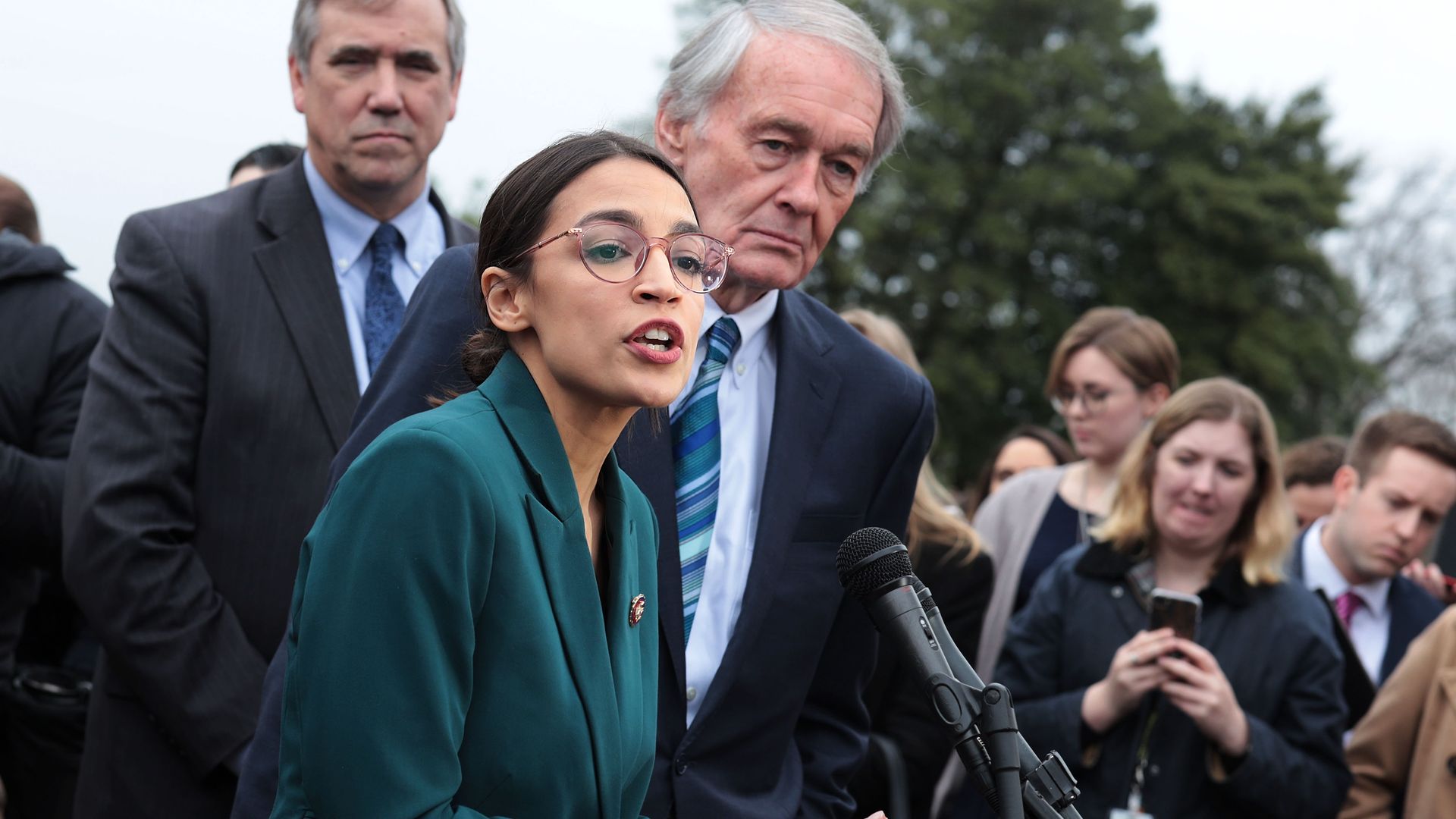Feb 7, 2019 - Economy
Expert VoicesThe Green New Deal may finally bring climate change to center stage
Add Axios as your preferred source to
see more of our stories on Google.

U.S. Rep. Alexandria Ocasio-Cortez (D-N.Y.) and Sen. Ed Markey (D-Mass.) unveiling their Green New Deal resolution in front of the U.S. Capitol, on Feb. 7, 2019. Photo: Alex Wong via Getty Images
